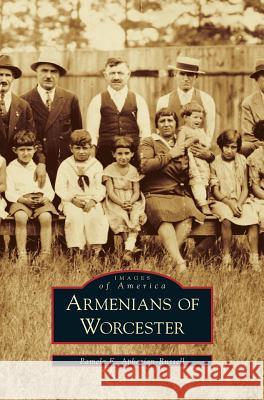Armenians of Worcester » książka
Armenians of Worcester
ISBN-13: 9781531602888 / Angielski / Twarda / 2000 / 130 str.
At the beginning of the twentieth century, millions
of immigrants came to the United States in search of a better life and greater opportunities for their families. However, the Armenians who came to Worcester between 1894 and 1930 were escaping a devastating genocide that tore their country apart. What they found and how they became an integral part of Worcester culture and history is the story found in Armenians of Worcester. Worcester was a mecca for many Armenians, who had escaped with little more than their lives. There were mills that provided work, and there was a growing number of Armenians who were struggling to make sense of what had happened in their homeland. The first Armenian Apostolic church and the first Armenian Protestant church in America were both in this city, and both helped to build new foundations for a community that was to enrich the city and slowly resurrect the art, theater, music, and food that celebrates the Armenian culture. The Armenian picnics that were an integrating influence in the early years continue even today as a gathering of clans and all who join in on these days of celebration.
At the beginning of the twentieth century, millions
of immigrants came to the United States in search of a better life and greater opportunities for their families. However, the Armenians who came to Worcester between 1894 and 1930 were escaping a devastating genocide that tore their country apart. What they found and how they became an integral part of Worcester culture and history is the story found in Armenians of Worcester. Worcester was a mecca for many Armenians, who had escaped with little more than their lives. There were mills that provided work, and there was a growing number of Armenians who were struggling to make sense of what had happened in their homeland. The first Armenian Apostolic church and the first Armenian Protestant church in America were both in this city, and both helped to build new foundations for a community that was to enrich the city and slowly resurrect the art, theater, music, and food that celebrates the Armenian culture. The Armenian picnics that were an integrating influence in the early years continue even today as a gathering of clans and all who join in on these days of celebration.











